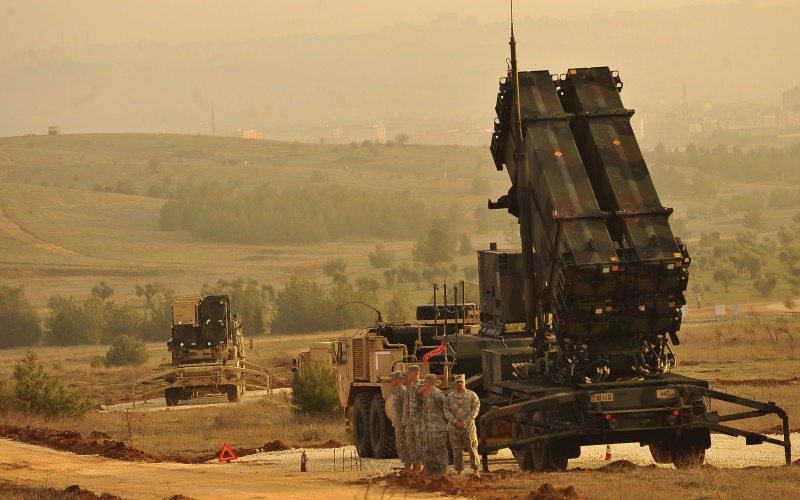A recent bombing in Gaziantep, Turkey underscores the current elevated threat posed by the Islamic State to the nation’s southern border provinces. Security is unlikely to improve given the ongoing conflict in the northern Aleppo region.

Since the beginning of the Syrian conflict, Turkey has increasingly been entangled in the devastating war of its southern neighbor. Ankara is actively supporting several insurgent factions opposed to the Syrian government as well as to Kurdish forces and other radical Islamist militants. Since July 2015, the conflict became an integral part of Turkey’s internal security environment as Islamic State militants carried out several high-profile attacks in Suruc, Ankara, and Istanbul.
These bombings came against the backdrop of repeated Islamic State calls to attack Turkey following its enhanced cooperation with the US-led coalition. Spillover from the Syrian conflict also led to a resurgence of the Kurdish-separatist insurgency, a factor that has further elevated the terrorist threat in the country and is marring the stability of south-eastern regions. There is, therefore, little doubt that security risks are increasing further along Turkey’s southern border.
A strategic supply route

ISIS territory in Syria and along the Syria-Turkey border, as of April 2016. Source: The Institute for the Study of War
For the Islamic State, as well as for other Syrian insurgent groups, the southern provinces of Turkey, especially the Hatay, Gaziantep, Kilis and Sanliurfa ones, are key strategic smuggling routes. Sunni extremists use the porous border between the two countries as a transit route for fighters and weapons as well as an essential trading network to sustain their finances. Turkey’s southern provinces are key for the Islamic State to obtain its much needed foreign fighters recruits. In addition, these areas have also proven strategic for the Islamist group to infiltrate militants in Turkey and Europe as part of its wider strategy to carry out terrorist attacks outside of the Middle East.
In a bid to mitigate the threat posed by Islamic State infiltration and cross-border operations, the Turkish government decided to build a 900 km protective wall alongside Syria. The construction of this defense system began in early 2016 and is expected to be completed by the end of the year. The project will include entrenchments and security fences to prevent infiltration. Additional police and military units are also being dispatched in the area to patrol the border. Turkish forces continue to target with artillery and air-strikes Islamic State fixed and mobile positions in Syria to help weaken the Islamist militants’ capabilities close to the national territory.
The battle for Aleppo and fighting spillovers
The fighting in the Syrian border areas north of Aleppo and Islamic State attempts to preserve its hold on strategic smuggling routes increase the risk of terrorist attacks and conflict spillovers in southern Turkey. On May 1st, a suicide car-bomb exploded in Gaziantep. The blast hit the local police headquarters and left three dead and 22 injured. The attack was blamed on the Islamic State and underscored the militant group capabilities in the city. The targeted assassination of two anti-Islamic State activists in December 2015 had already brought to light the presence of Islamic State tight intelligence gathering networks in the southern province.
The fighting in northern Syria as well as Turkey’s ongoing domestic counter-terrorism operation have led to heightened friction between Ankara and the Islamic State along the country’s southern border. Islamic State militants have increased the number of cross-border attacks and—since April 2016—insurgents have been conducting a higher volume of rocket strikes against the Kilis province.
Since the beginning of the year, these attacks have left at least 18 dead and 60 wounded on the Turkish side. As Turkey expands its anti-Islamic State operations, it is likely that Sunni extremists based north of Aleppo will conduct additional retaliatory attacks. This situation increases the overall volatility of southern Turkey and adds to the instability of the country.
A wider terrorist threat for Turkey
Current tensions along Turkey’s southern border with Syria are part of a wider security issue linked to the Islamic State’s menace to the country. Since July 2015, Sunni extremist militants conducted four major attacks—one of which even being in Ankara (October 10th), and two in Istanbul (January 12th and March 19th). These bombings left in aggregate 159 dead and showed the Islamic State’s intentions and capabilities to hit crowded public places, tourist districts, and commercial areas.
As the Turkish government steps up military operations along its border and an anti-Islamic State operation within the country, there is an elevated risk that Sunni extremists will continue to attempt major attacks in Turkey’s largest cities. This risk was highlighted by the disruption of an Islamic State terrorist plot aimed at targeting the May 1st Labor Day rally in Ankara. In the foreseeable future, Islamist militants will continue to pose a threat to Turkey’s main cities as well as to the southern provinces. While security operations may serve to mitigate this risk, the Syrian conflict will remain as the primary driver behind the terrorist threat in Turkey.
sourche: http://globalriskinsights.com/2016/05/syrian-war-risks-growing-southern-turkey/
Δεν υπάρχουν σχόλια:
Δημοσίευση σχολίου